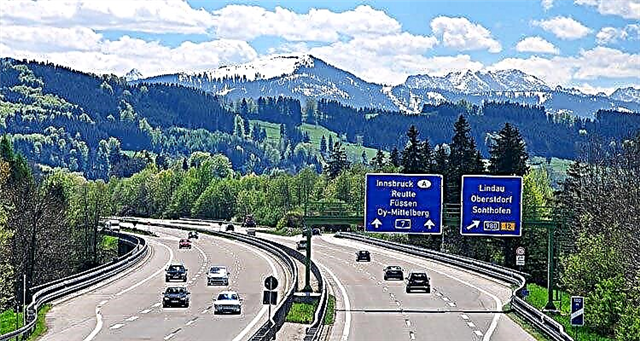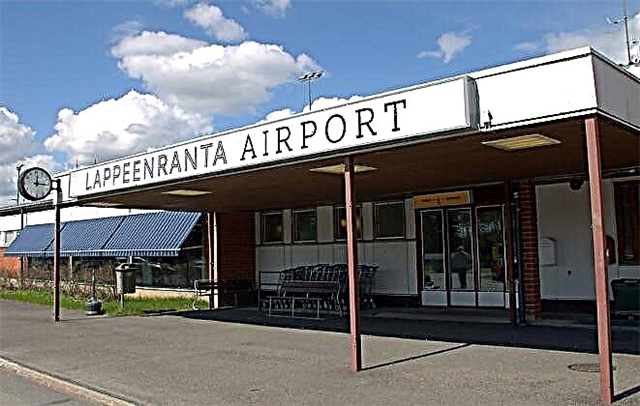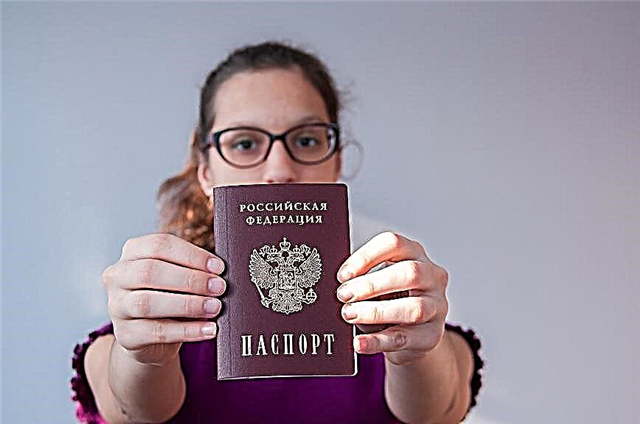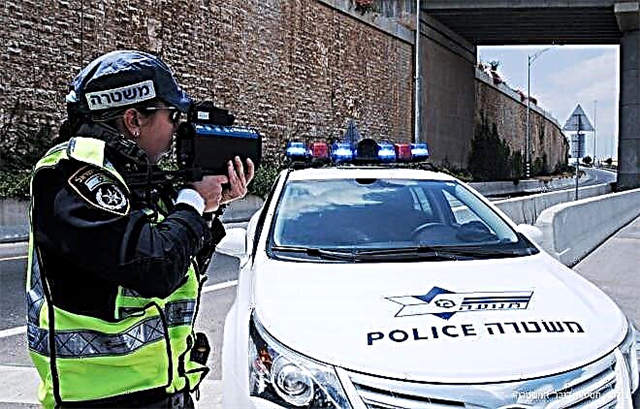Having a driver's license and a car greatly simplifies life in Israel for both residents of the country and tourists. Short distances, a developed network of roads and highways connecting all regions of the country, a rich road infrastructure, benefits for immigrants when buying a car allow Israeli citizens not to depend on their place of residence when choosing a place of work. Autotourists, on the other hand, have the opportunity to learn more about the sights and beauty of Israel. A detailed acquaintance with the traffic rules in Israel will be useful for both tourists and future repatriates.

General information for motorists
In Israel, there are 374 private cars for every 1000 people, and today about 2 million 900 thousand cars drive on the roads of the country. The operation of cars with internal combustion engines is permitted in Israel, but the transition to electric vehicles is planned from 2030.
In recent years, the sales leadership in Israel has been firmly held by automakers from Japan (28% of the market) and Korea (14%): Hyundai, Nissan, Toyota, KIA, etc. More than 7% of cars are German brands (Volkswagen, Mercedes-Benz).
Israeli car numbers have seven digits on an orange background.

Since 2021, the introduction of eight-digit numbers has begun for the sale of new cars.

The inscription “Rehev Asfanut” with a six-digit number on a yellow background means a vintage car over 30 years old. Police cars can be identified by their numbers on a red background.


Some of the features of driving in Israel may surprise you:
- Israeli drivers often “forget” to turn on turn signals when changing lanes;
- they can stop in the middle of a one-way street to buy shawarma or unload passengers (the rest will patiently stand in a traffic jam);
- impatience at traffic lights - a second delay on the green light causes anger among the drivers of the second and subsequent cars.
At the same time, the drivers treat each other with respect and are ready to come to help at any time.
A car qualifies in Israel as a luxury, and even the owner of the old "kopeck" cannot claim either unemployment benefits or additional payments up to the subsistence level.
Take a sociological survey!
What do road signs and markings say in Israel
Road signs in Israel comply with accepted international standards (Vienna Convention) and are mostly familiar and understandable to drivers. But there are some differences.
First, all inscriptions are duplicated in Hebrew, Arabic and English.
Secondly, there is no sign of priority "Main Road" in the Israeli traffic rules.
Thirdly, some signs may differ from the generally accepted ones. So, for example, in the group "Warning signs" these include:
- warning about approaching the "Stop" sign coverage area,

- toll road sign.

The following signs unfamiliar to Russians:
- "Urban road zone" - designation of the beginning and end of the settlement.
- No entry zone for training cars.
- Stop sign or driving without stopping is prohibited. In Israel, the stop sign is dispensed with - a white palm is depicted on a red background.

- Designation of hospitals (letter "H" in black on a white background), hospitals with general emergency care (letter "H" in red on a white background) and points of first aid (red Star of David on a white background and a hand with a bandaged finger).
We offer you to download a complete list of road signs in Israel.
Road markings in Israel comply with the requirements of the Vienna Convention. Drivers should pay special attention to the color of the curb - the possibility of parking depends on it:
- red and white color prohibits any parking and stopping at any time;

- blue and white - paid parking using parking tickets or other payment methods during working hours, on Shabbat - free;

- black and white - indicates the edge of the road;

- yellow-red - a place to stop public transport.

Toll roads and lanes in Israel
Almost all Israeli highways and private passenger car highways are free of charge, with the exception of:
- Carmel tunnel from two sections (1.6 km and 3.2 km) under Mount Carmel in Haifa. Payment is made through a special cash terminal at the entrance to the tunnel. Travel in 2021 for a passenger car - 9.97 new shekels (ILS) per section. Customers can take advantage of a discounted pass and pay ILS 7.08. You can subscribe to the service and find out the tariffs on the website www.carmeltunnels.co.il/terms/.
- Highway 6 (“Yitzhak Rabin Highway”). The track is 140 km long and has 9 sections (2 southern sections are free). The northern section (from Iron to Ein Tut) is paid separately - 5.74 ILS per passenger car. The minimum fare is charged for three sections (NIS 4.05 per section), the maximum fare is for 5 sections. Cameras record car numbers, automatically calculate the cost, and then send invoices to the owners. Price indexation takes place twice a year (April 1 and October 1). The official website www.kvish6.co.il is unstable.
- Left Expressway from Ben Gurion Airport to Galuyot Bridge on Highway 1 (Tel Aviv to Dead Sea). The fare is from 7 to 100 ILS, depending on the traffic situation. The current price is displayed on the board at the entrance to the lane.
The road map of Israel shows that there is a free alternative to toll roads - most of the roads in the country have high-quality coverage.
What you need to know about parking and gas stations
The problem of parking in Israel, especially in large and resort cities of the country, is very relevant: every year there are fewer free parking lots, and finding a free space for a car is becoming more and more difficult. Payment for parking in Israel is carried out in various ways: you can buy a ticket at a parking meter or at a kiosk next to the parking, through the Pango mobile application (for Israelis), CelloPark, etc. At the post office you can buy for 84 ILS (+ 5 ILS to the account) device - easypark : on the display dial the parking zone, time (maximum two hours). Replenish the device at gas stations.
The cost of an hour of parking depends on the place and time of parking. So, an hour of parking a car in a small town will cost from 2 to 5 ILS, in Jerusalem - from 8 ILS and more. One of the most expensive parking lots is in Eilat (17 ILS).
It is more profitable to use 24-hour parking in Tel Aviv - 25 ILS per day. Two hours of short-term parking will cost the same as a 24-hour parking in Tel Aviv: you will have to pay 21 ILS per hour, and after it expires, you will have to pay 3-4 ILS for every 15 minutes.
Despite the small number of free parking lots, there is still a theoretical possibility to park a car for free, for example, in Jerusalem - next to the market, with the old station building. Free parking is often easiest to find in Haifa, Tiberias and the outlying areas.
Gasoline in Israel is expensive - from 6 to 7 ILS per liter. You can pay either in cash or by credit card (but with a limit of 195 ILS). Israeli gas stations operate in two modes:
- automatic - you must dial the car number yourself, indicate the TIN and the Israeli driver's license number (for Israelis);
- manually - the gas station employee will do everything himself. Cons - a margin, as well as the fact that on Saturday or at night the employee will not be in place.
A few facts about traffic rules in Israel
Traffic rules in Israel meet all international requirements. At the same time, it is worth paying attention to several important aspects:
- An abundance of cars with a right-hand drive may cause tourists arriving in the country to question whether the traffic in Israel is right-hand or left-hand. The Israeli traffic rules clearly state that traffic in the country is right-hand;
- the driver and all passengers must wear seat belts while driving;
- it is forbidden to drive a car after drinking two servings of alcohol - more than 0.5 ppm. Refusal to test for alcohol is an offense;
- it is allowed to use the horn only to prevent an accident;
- it is impossible to operate the car unnecessarily, holding the steering wheel with one hand;
- when driving on intercity routes, be sure to turn on the dipped headlights;
- it is important to strictly adhere to speed limits. Permitted speed in Israel within the city - 50 km / h, outside the city - 90 km / h, on highways - 100 km / h, high-speed sections of highway No. 6 - 110 km / h;
- driving in reverse is prohibited (except for parking);
- it is strictly forbidden to throw garbage out of the car window;
- when stopping outside the city at the side of the road, get out of the car only in a yellow special jacket;
- the rules for transporting children in a car in Israel prohibit children under 14 years of age from riding in the front seat. Toddlers under 4 years old must use a special child seat;
- it is forbidden to talk on the phone without using a special wireless headset;
- it is allowed to tint the rear side and, if there are two rear-view mirrors, the rear window.
Fines for traffic violations
For traffic violations in Israel, the driver is charged with penalty points - “nekudot” (2, 4, 6, 8, 10) and fines are issued. Residents of the country can painlessly have 10 points. Penalty points are valid for 2 years, then they are canceled (with 22 points, the period is doubled). The offender can pay a fine or file a request for judicial review.
The most common types of punishment are:
| Type of violation | Penalty amount (ILS) / number of penalty points |
|---|---|
| Passing a red light in Israel | 1500/10 |
| Exceeding the maximum permitted speed by more than 31 km / h | 1500/10 |
| Failure to provide priority to a pedestrian at a crossing | 500/4 - 10 |
| Lack of registration certificate | 1000/6 |
| Talking on the phone without a headset | 750/8 |
| Parking in the wrong place | 250/2 |
| Transportation of a child under 4 years old without a seat | 750/4 |
| Unfastened seat belt | 250/2 |
The fine must be paid (protested) no later than 30 days from the date of delivery of the notification. Otherwise, the amount of the fine will double, after 6 months it will double again, and so on.
Upon receiving 12 points, the driver must complete a driving course and pass an exam. For 24 points, you will have to take the courses again. For 36 points, deprivation of rights for 3 months will follow, for 72 points - deprivation of rights for 9 months with re-examination.
There is no problem where to pay a traffic fine in Israel - this can be done at any post office or bank. The parking penalty can be paid by submitting credit card details to the parking department of the city where the rules were violated.
Basic requirements for the driver and the condition of the car
The driver must have with him, in addition to an identity card, a driver's license, a permit to use a car and an insurance policy. The car must have a yellow special vest, an emergency sign, spare bulbs.
Inspection of private cars in Israel is carried out annually at licensed inspection points (for cars over 19 years old - every six months). The cost of technical inspection is 1 thousand ILS.
New cars undergo technical inspection after 2 years of operation. For cars over 15 years old, the brake system is tested in a car service. The average age of Israeli cars is 6.5 years.
If there are faults, 7 days are given for their elimination and a second technical inspection is carried out, for which you need to pay again.
Driving license in Israel
Many foreigners are interested in the question of whether an international driver's license is needed in Israel. According to the decision of the Ministry of Transport, foreign citizens who legally entered Israel and have a driver's license with entries in English, as well as a driving experience of at least 5 years, have the opportunity to drive a car for 6 months. Therefore, speaking about whether Russian rights are valid in Israel, it should be noted that a plastic driver's license of the Russian Federation meets all the requirements of the Israeli side.
 In 2021, Israel began issuing a new driver's license.
In 2021, Israel began issuing a new driver's license.
The replacement takes place gradually - the rights of the old model continue to operate until the expiration of their term.

In 2021, the procedure was simplified according to which a driver's license in Israel for repatriates can be converted within one day. Immigrants with a category B driver's license with 5 years of experience can replace their driving license with an Israeli one within 3 years without passing a practical test. It will cost 440 ILS.
How to get a driver's license in Israel
Obtaining rights in Israel is available not only to residents of the country, but also to foreign citizens. Foreigners can undergo training, and if they have a driving license obtained at home and have driving experience, they can receive confirmation and exchange them for Israeli ones.
You can learn to drive from the age of 16. Training takes place in two stages - theoretical and practical, each of which ends with an exam:
- in Israel, driving theory includes 1800 questions, which are posted on the website of the Ministry of Transport, studied using one of the theory sites www.lamed.co.il, isradrive.info, followed by a theoretical exam (30 questions with the right to 4 errors);
- practical training in a driving school (28 lessons). Cost - 3 thousand ILS. Then, after an eye test (50 ILS), a practical exam (400 ILS).
From 2021, the waiting time for the practical exam has been reduced to 3 days, the date is within 24 hours after the application is submitted. The examiner and the exam route are randomly selected. The process, as they pass for a license in Israel, is recorded on camera and monitored by inspectors from the Ministry of Transport.
Car rental
Tourists from Russia with a driver's license are free to rent a car. Car rental in Israel with Russian license is possible subject to the following conditions:
- the driver is over 21 years old;
- driving experience of at least 1-2 years;
- driving license of category B;
- valid international passport;
- credit card (MasterCard, Visa).
A car can be booked in advance on one of the rental companies' websites: rent.avis.co.il, budget.co.il, hertz.co.il and others, or on an aggregator site, for example rentalcars.com.
The cost depends on the season, car model, insurance, term. Daily rental of an economy car will cost from $ 20 on average, for a middle class car - up to $ 40.
Accident with a rented car: what to do
When you commit an accident, a lot will depend on the concluded insurance. A minor accident is usually straightforward and the police can be dispensed with. Necessary:
- fix the damage;
- take a photo of the documents of the second participant in the accident - driver's license, identity card, insurance, write down the phone number, information about the transport, provide your data to the other party;
- inform the insurance and rental company by the phone numbers specified in the insurance policy.
Police emergency numbers - 100, ambulance - 101, fire service - 102.
In case of bruises, injuries, loss of blood, emergency medical assistance telephones - 1-800-800-666, the Center for Assistance to Road Traffic Victims in Tel Aviv - 03-5257317 will come in handy.
The article “Transport in Israel: Great Opportunities of a Small Country” will tell you about the conditions of renting a car and the work of other types of transport.
Let's summarize
Traveling in Israel with a rented or your own car is not difficult. Traffic rules in the country comply with international standards, road signs and markings are clear to drivers. It should be noted that in Israel there are serious fines for traffic violations.
To rent a car, Russians just need to have a new type of plastic driver's license. New repatriates with a driver's license and experience of at least 5 years have the right to change their Russian license for an Israeli one within three years after arriving in the country.











